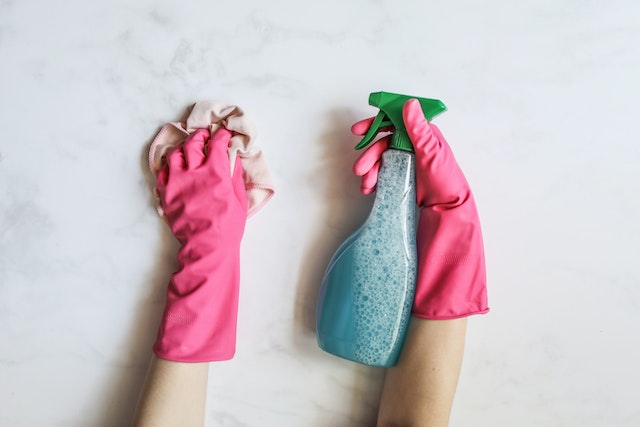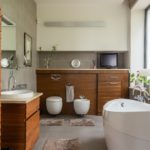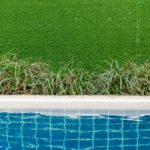
It’s important to keep your swimming pool clean and hygienic. Cleaning products will increase the quality of water, prevent corrosion, scale on equipment, prevent algae growth, and make the disinfection process easy.It is about keeping up with pool maintenance, ensuring your water stays healthy and swimmable. Proper water balance and pool maintenance can keep your pool welcoming and inviting for you, your family, and your guests. Keeping your pool’s water clean, clear, and balanced can keep contaminants and pollutants out of you and your family.
Swimming pool chemicals are working to keep your water in the perfect state to allow the chlorine to do its job. Some swimming pool chemicals should never be mixed, such as muriatic acid and chlorine, creates a dangerous chlorine gas when combined. Keeping your pool clean requires using chemicals (such as chlorine, bromine, and cyanuric acid), although you are not necessarily going to be using chemicals (such as chlorine) for cleaning.
To ensure that your pool looks its best, you will want to keep your water moving and properly filtered, keep your garbage and dead spots cleaned, and balance the water chemically. Because eventually, after weeks and weeks of filtering water, your pool filter starts clogging up with debris. Any piece of debris that stays in your pool, regardless of size, will eat through your sanitizer and kick the levels of the chemical.
That is because, without circulation, chlorine in your skimmers continues to dissolve and becomes a strong chemical force, which weakens plastic skimmer parts and becomes very corrosive once it gets to your pool pumps and other water-filtration equipment. While placing chlorine in a pool’s skimmer basket might seem like a simple way to bring chlorine to your pool, which helps keep your water cleaner, this could also be counterproductive for you.
Since you want to keep your pool clean, you are going to have to add chlorine tablets and adjust your pH levels (based on the initial readings). To make things easier, choose a testing kit, which tells you whether or not you will need to add any chemicals to the pool to keep the balance of your water. To maintain water balance, you should check the pool a few times per week to check the chlorine level and pH, and adjust when necessary.

While you must buy salts and chemicals to add to your system, you will shock your pool less often each year than with a chlorine system. Shocking your pool increases the chlorine levels dramatically over a brief period to remove contaminants.
More complex models have a probe with sensors that automatically test your pool’s chlorine and pH levels every few minutes, injecting chlorine or acid to keep your water clean and balanced. The most basic models simply inject chlorine into the pool — the quantity and frequency are programmed by you. Liquid Chemical Feeders are fitted into the pool filtering system and add liquid chlorine, and in some cases acids, automatically into the water.
pH plays a major role in keeping the pool water clear, keeping water light for your eyes & swimming equipment, and keeping the chlorine you are injecting into your pool from being used up too fast. The remaining 30% is the inert ingredients that make keeping the pool water clean harder, it does not have stabilizers, which is why the chlorine in the pool gets used up more quickly, requiring you to add it more frequently. Pool supplies are an important ingredient to maintain clear, sparkling water and for the successful operation of a pool. From collecting leaves and debris to keeping the chlorine levels steady, there is an extensive array of tricks, tools, and products for keeping the pools in tip-top condition.
Unlike stabilized chlorine, unstabilized chlorine needs to be used frequently and at higher concentrations to keep your pool clean. Salt chlorinators work automatically, so you can take vacations knowing that the water in the pool stays clean. Saltwater pools use salt chlorine generators to turn ordinary salt crystals into chlorine gas that is soluble in water.
Some methods include using a solar pool cover, which can decrease chlorine evaporation and water loss, switching to an ultraviolet-oxidation system and ozone, or switching to a salt-and-mineral sanitizing system. There are other options for keeping your pool water clean and balanced — like using ozone gas, UV disinfection, bromine, or ionization — but those methods are very small parts of the Australian market.
Brushing the algae from your walls and filter will keep the chemicals in the pool working for longer because it is not working so hard. Having too many phosphates in the pool makes algae growth more likely, making proper pool chemistry harder to maintain.
Testing is important, as pH levels too high or too low can cause all sorts of problems for your pool, ranging from corrosion to equipment to increased growth of green algae. Phenolic Red and OTO tests are more expensive than OTO tests but give a better sense of how much chlorine is working to clean the pool. Rain, heat, humidity, sweat, and how many people are using your pool all impact how much chlorine is needed, as well as how frequently you will need to change it out and check your chemical levels.




